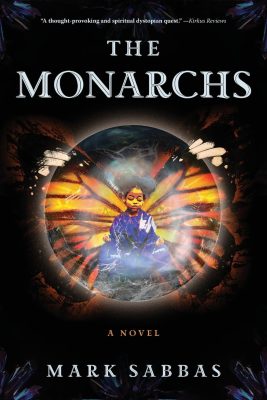|
Listen to or download this article:
|
 Alex Sirotkin’s debut novel, The Long Desert Road, navigates the emotional arcs of life in contrast with the greater expanse of the cosmos. Here a young woman must face her addictions while the people around her try to move beyond her backlash.
Alex Sirotkin’s debut novel, The Long Desert Road, navigates the emotional arcs of life in contrast with the greater expanse of the cosmos. Here a young woman must face her addictions while the people around her try to move beyond her backlash.
We meet Henry Spinoza, a 44-year-old quirky science writer. He ponders his life as half over, looks for the right woman, and wonders if there isn’t more to existence.
For twenty years, Henry, a science writer, has been researching a non-fiction book on the universe that he intends to write. Henry’s feeling “bored, boring, and budget-conscious…the trifecta of gloom,” as he puts it. But in the middle of this ennui, his sister-in-law invites him to dinner, along with her divorced friend, Isabel Dalton, an attorney, and “the setup is afoot.”
Meanwhile, Isabel deals with a family crisis. Her daughter Lauren, newly out of rehab, gets into a severe accident with tragic consequences. Determined to stop enabling Lauren, Isabel places her in the Dusty Palms rehab facility for an extended 6-month stay. Lauren struggles through detox and nightmares, therapy sessions and medications, self-destructive escapades, and mother/daughter communications. Lauren’s thinking, actions, and attitude would justify Henry’s subsequent observation that she’s “just your average, somewhat immature, impulsive bipolar twenty two year old with a history of serious trauma, drugs, alcohol and jail.”
In an effortless blend of conversation, humor, and questioning, Henry and Isabel slowly begin to bond.
Their relationship blossoms from sushi dinners and casual banter. Henry’s fascinating diatribes about the cosmos and Isabel’s sharing of her daughter’s cunning, manipulative ways deepen their connection. When Lauren’s sudden, unexpected release from rehab threatens to derail the merging couple’s dream trip to Chile (coinciding with Henry’s last bit of research), Henry convinces Isabel that they should bring Lauren along. Amidst the desolate beauty of the hot Atacama Desert, with an infinite sea of stars and planets shining down upon them, these characters find common ground, coming to terms with their inner struggles.
Sirotkin tells a story richly layered with well-defined characters, an informative narrative, and genuine, probing dialogue. While the characters initially appear in their own chapters, their lives soon become entwined. Multiple subplots quickly move the action forward. The story uncovers a variety of personal and family issues that help these characters recognize their pitfalls. Henry’s enthrallment with the cosmos contrasts Isabel’s frustration and concern for Lauren. Finally, Lauren begins to question her own self-destructive impulses.
Clearly, much research went into this work.
The story’s focus on addiction reflects Sirotkin’s personal experience with a similar family situation. He creatively places this sense of concern within the framework of a scientific perspective. Sirotkin keeps the science complex but understandable. Henry’s enthusiasm about the wonders of the sky spreads to the reader. Atop a mountain observatory, Henry shines as a brilliant researcher who openly recognizes that scientific principles don’t necessarily conflict with faith in God in the search for truth.
The Long Desert Road thoughtfully explores family, friends, relationships, love, loss, and addiction. More importantly, it reveals the minute significance of these intertwining stories within the vast complexity of our star-studded universe. Highly recommended.
Alex Sirotkin’s The Long Desert Road was the 2021 Grand Prize Winner for the Chatelaine Awards.











Leave A Comment